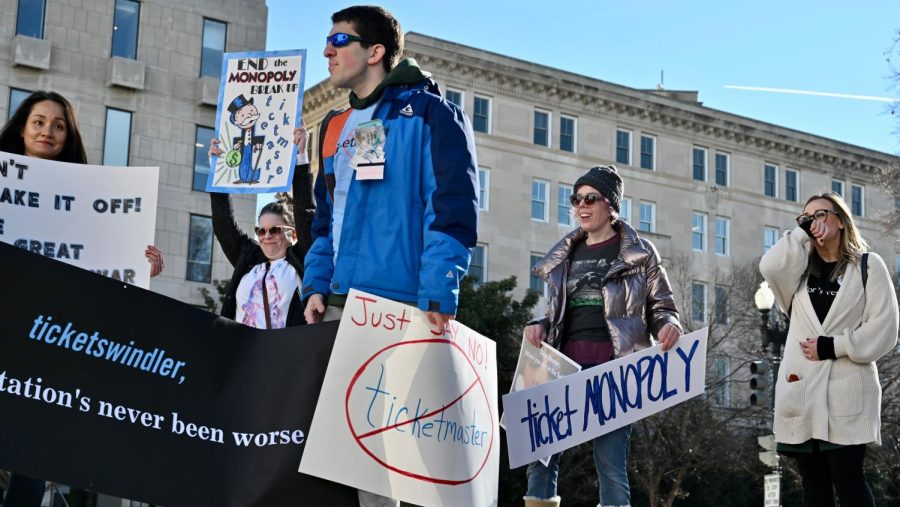TICKETMASTER EXPOSED
The shady effects of Ticketmaster’s monopoly over the ticket market
If you’ve ever attended a concert, chances are you used Ticketmaster to buy your seats. After all, there’s hardly any other options – but why is that? For years, Ticketmaster has been dominating the ticket market, to no benefit of anyone else.
Competitors of Ticketmaster do exist – StubHub, Ticketfly, AEG, and others – but this doesn’t mean that the company is incapable of using its influence in the market to prevent fair competition. For example, according to reports in 2018, Ticketmaster used its connection to LiveNation Events to prevent acts from performing at the Gwinnett Center, located just outside of Atlanta, Georgia, after the venue started using AEG to sell its tickets.
It was the 2010 merger with LiveNation Events that brought Ticketmaster from a power player in the industry to a full-blown monopoly. It may be worth noting that LiveNation is the company responsible for the disastrous Astroworld concert in 2021.
It doesn’t end there. Ticketmaster made over $12 billion dollars in 2022 – double their profits in 2021. Yet, the company can’t seem to properly pay the artists whose work makes their money. All profits from a LiveNation/Ticketmaster event are split between the artist and the company – with artists taking home just 40% according to Clyde Lawrence, an artist who spoke out about Ticketmaster’s abuses earlier this year. Interestingly, Ticketmaster publicly claims that artists take home the majority of concert profits. Additionally, the company often tacks on a ticket fee, meaning that artists often take home only a fraction of what fans pay to see them live. Considering that artists have to pay for touring-related fees, health insurance, and other career-related expenses, as well as income tax, the real profit is meager.
Huge musicians, such as Taylor Swift, may not suffer greatly from such policies, but small artists are being seriously affected by the practice. That isn’t to say that Swift and her peers won’t be taking blows from the monopoly. Fans hoping to attend her concerts last year were disappointed when tickets were extremely hard to acquire on the site, even for those who were granted presale access. For many, the only hope was to buy tickets being offered by scalpers – people who buy large amounts of tickets to sell them later for a higher price. Some of these tickets cost thousands of dollars, even for seats that weren’t particularly good.
Ticketmaster claims to be attempting to control the scalper situation. But if this is really the case, how did resellers have their hands on tickets before fans with presale access? According to undercover journalists in 2018, it’s because Ticketmaster is scalping their own tickets.
The journalists attended a ticket-selling and event convention, where they identified themselves as scalpers. They were reportedly approached by a Ticketmaster employee to talk to them about a “professional reseller” program. The program creates a network of scalpers capable of buying up thousands of tickets and selling them on Ticketmaster’s own platform, TradeDesk. But how does this benefit Ticketmaster? The company takes fees from scalpers at every step of their scamming process.
So, not only does Ticketmaster neglect to manage customer abuse, but actively sponsors it. Put that together with anti-competitive practices, artist exploitation, and a whole lot of lies to cover it up, and you have one shady monopoly.


